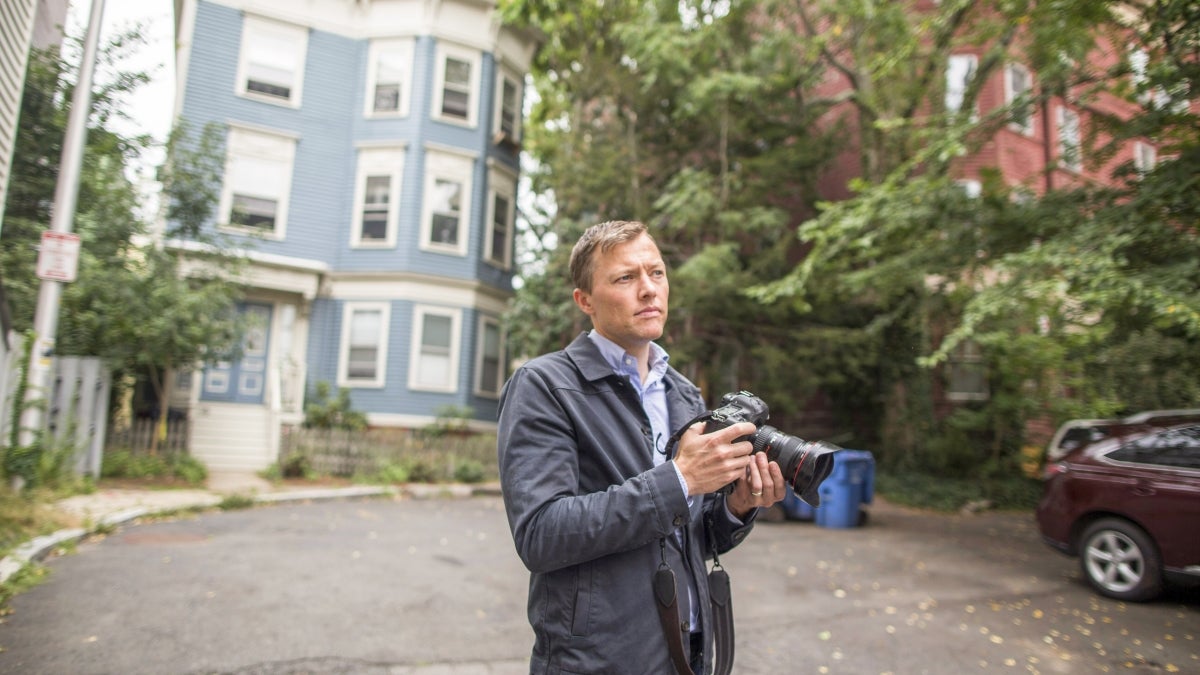ASU alum visits campus to discuss research, new 'Evicted' book

Matthew Desmond is an ASU alum and a sociologist at Harvard. He is the recipient of a MacArthur “Genius Grant” and has received many positive reviews for his newly published book, “Evicted: Poverty and Profit in the American City.” Currently on a book tour, Desmond took the time to visit ASU on April 7, where he discussed his background and research.
Question: When and why did you decide to pursue a double major in communications and justice studies for your undergraduate degree at ASU?
Answer: I thought I wanted to be a lawyer, and so I thought that communications would help me in the courtroom and that justice studies would provide a foundation for understanding jurisprudence. The more I studied history, law and sociology here at ASU, I had more questions than answers. And when I finished I felt that I needed to continue understanding inequality in America. That’s what drew me to graduate school, and I think those two majors worked really well.
Q: What are some of your most memorable moments as a student with the justice studies program, or at ASU in general?
A: I’m from a small town in northern Arizona, so being in a classroom around folks from many different places in America and with a lot of different political persuasions left a huge impression on me. There’s a class on critical race here in justice studies; it was very formative and eye-opening to me. And I still keep in touch with that professor who is now in Philadelphia. I think ASU also gave me a chance to get involved in student activism and student community service, which was a big part of my time here, and I think that was a valuable learning experience for me too.
Q: What was your undergraduate thesis about, and how did you decide on that topic?
A: My thesis adviser was [Dr.] Amira [de la Garza] actually, and she introduced me to the craft of ethnography through her class and through regular meetings with her. We decided to use that method to understand this group of homeless folks who were living in the forest in northern Arizona. I spent some time with them, and it was a different kind of homelessness. It was a professed homelessness that was chosen, but that choice was really complicated and loaded. My thesis was an ethnography about them, and they were up by Strawberry, Arizona. That taught me how to get the story right on the ground, how to report right about people’s lives, and that laid the groundwork for what I’m doing now.
Q: How did justice studies prepare you for the work you have done later, either academically or personally?
A: In my work, I draw off sociology economics, law and history. I think justice studies prepares you for that orientation where tackling some of these big problems requires thinking broadly and drawing off perspectives from a lot of different disciplines. Another thing that is important is that justice studies attracts people who want to be police officers, activists and more. Having all of these people come together is very important. I think that you have to give both sides of the story to understand the full perspective or else you are just talking in an echo chamber. That’s one thing that has informed my work over the years, too.
Q: Do have any advice for up-and-coming researchers or students?
A: I would say don’t be afraid to try to tackle some of the most morally irritant problems of the day. Don’t be afraid to put your shoulder to the wheel. Even though they are complex and hard problems, we all have a role to play in these things.
Written by Sarah Moser, student, Justice Studies